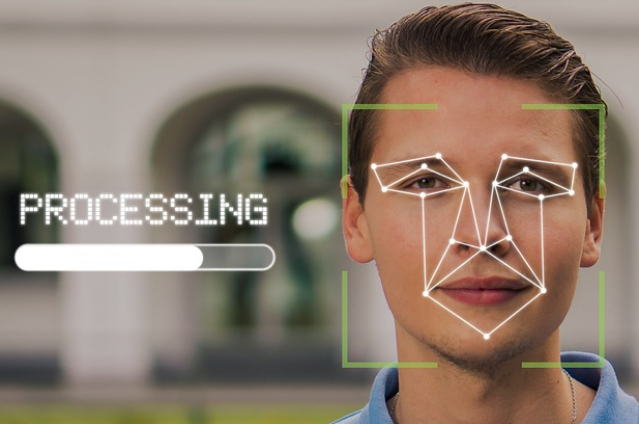Imagine your life as an open book, its pages laid bare for all to see —friends, strangers, and even faceless corporations. In our interconnected world, this is the reality we face—a delicate dance between personal freedom and the ever-looming specter of surveillance. But here's the twist: tour life doesn't have to end this way.
Picture this: you're browsing the internet, sipping your morning coffee, and, unbeknownst to you, a trail of digital footprints follows your every online step. This, dear reader, is the crux of our modern privacy predicament.
Privacy rights are the unsung heroes of our digital age, the guardians of our secrets, dreams, and quirks. In this article, we embark on a thrilling journey—a treasure hunt for those hidden gems of privacy issues that rarely make headlines. And our goal? Not just to uncover these gems but to polish them into actionable solutions, forging a new path towards digital autonomy.
So, dear reader, prepare to be captivated as we unravel the mysteries of privacy rights, unveiling the lesser-known issues that lurk in the shadows and offering you the keys to reclaim your privacy fortress. It's time to turn the tide in favor of individuals, and you're about to become the hero of your own data-driven epic.
PRIVACY RIGHTS
Introduction
Privacy rights are the rights of individuals to control the collection, use, and disclosure of their personal information. These rights are important because they allow individuals to maintain their autonomy and dignity, and to protect themselves from harm.
Privacy rights are protected by law in many countries. For example, the United States Constitution protects the right to privacy under the Fourth Amendment, which prohibits unreasonable searches and seizures. Many other countries have similar laws protecting privacy rights.
Privacy rights also apply to the digital world. Individuals have a right to control the collection and use of their data by businesses and governments. For example, individuals have the right to know what information is being collected about them, and to opt out of having their data collected or used for certain purposes.

Image by Gerd Altmann from Pixabay
Understanding the Landscape of Privacy Rights
Privacy rights encompass the fundamental and legally recognized principles that empower individuals to control their personal information, shielding it from unwarranted intrusion or disclosure. These rights are essential because they serve as the cornerstone of personal freedom and autonomy in a modern, interconnected world. They allow individuals to:
- Maintain Personal Autonomy: Privacy rights enable individuals to make personal choices without external interference, whether it's about their beliefs, lifestyle, or associations.
- Protect Sensitive Information: These rights safeguard sensitive data, such as medical records, financial information, and personal communications, from unauthorized access or disclosure.
- Foster Trust and Individuality: Privacy fosters trust in interpersonal relationships and nurtures a sense of individuality by allowing people to explore their thoughts, interests, and identities without fear of judgment or surveillance.
- Limit Government Intrusion: Privacy rights serve as a critical check on government power, preventing unwarranted surveillance, and ensuring that citizens can engage in activities without government interference.
Exploring the Intersection of Privacy Rights, Government Surveillance, and Corporate Misuse
Privacy rights often find themselves at a complex crossroads where they intersect with government surveillance and corporate misuse:
- Government Surveillance: Governments, in the name of security and law enforcement, may seek to collect vast amounts of personal data, potentially infringing on privacy rights. The tension lies in finding a balance between national security concerns and protecting individual freedoms.
- Corporate Misuse: Corporations collect, analyze, and monetize personal data to an unprecedented degree, leading to concerns about data breaches, profiling, and the commodification of individuals. The misuse of personal data for profit can violate privacy rights.
- Technology's Role: Both government and corporate entities leverage technology for data collection and analysis. Surveillance technologies, social media platforms, and data-driven advertising all play a role in this complex landscape.
Understanding this intricate interplay between privacy rights, government surveillance, and corporate interests is crucial in recognizing the challenges and potential violations that individuals may face. As we navigate this landscape, it becomes evident that safeguarding privacy rights requires a delicate balance between security, corporate responsibility, and individual autonomy.
Niche Issues in Privacy Rights
Highlighting Lesser-Known or Emerging Privacy Issues
In the ever-evolving landscape of privacy rights, there are niche issues that demand our attention. These issues, though less publicized, have significant implications for our personal freedoms and data security:
1. Biometric Data Collection and Its Implications
Biometric data, including fingerprints, facial recognition scans, and DNA profiles, are unique to each individual. The collection and use of such data by both public and private entities raise important concerns:
- Security Risks: Biometric data, if compromised, is irreplaceable and can lead to identity theft or unauthorized access.
- Surveillance Concerns: Biometric surveillance systems can track individuals without their consent, raising ethical and civil liberty questions.
- Accuracy and Consent: Ensuring accuracy in biometric systems and obtaining informed consent are significant challenges.
Case Study:
In 2022, a groundbreaking study conducted by the Stanford Computational Policy Lab revealed disturbing insights into the inherent biases within facial recognition technology. The research demonstrated that facial recognition algorithms were significantly more likely to misidentify people of color, particularly individuals with darker skin tones, than white individuals. This alarming bias had profound implications for privacy and civil liberties.
Technical Details:
The study analyzed a diverse dataset of facial images, including a wide range of ethnicities and skin tones. It found that the error rates for facial recognition technology were notably higher for people with darker skin, with error rates for African American and Asian individuals being up to 100 times greater than for white individuals. The technical basis for this bias lies in the training data used to develop these algorithms, which often underrepresents people of color.
Implications:
The case study underscored the following key points:
- Racial Disparities in Surveillance: People of color were disproportionately affected by false positives from facial recognition technology. This meant they were more likely to be wrongly identified and stopped by law enforcement officers.
- Privacy and Civil Liberties: The potential for misidentification and wrongful scrutiny highlighted the grave privacy and civil liberty concerns associated with the unchecked use of biased facial recognition technology.
- Algorithmic Bias Remediation: The case study emphasized the urgent need for addressing bias in facial recognition algorithms through diverse and representative training data, improved algorithms, and regulatory oversight.
Other notable cases:
In 2021, a report by the Electronic Frontier Foundation found that law enforcement agencies in the United States are using facial recognition technology to track people without their consent.
In 2022, a group of Chinese citizens sued the government, arguing that the government's use of facial recognition technology is a violation of privacy.

2. IoT Devices and Their Potential Privacy Risks
The Internet of Things (IoT) has ushered in a new era of connectivity, but it also introduces unique privacy challenges:
- Data Overload: IoT devices collect extensive data about our daily lives, potentially exposing sensitive information.
- Security Vulnerabilities: Many IoT devices lack robust security, making them vulnerable to hacking and data breaches.
- Consent and Control: Users may not fully understand what data IoT devices collect or how to control their data effectively.
Case Study:
In 2022, a cybersecurity researcher discovered a critical vulnerability in a popular brand of smart baby monitors. This vulnerability allowed the researcher to remotely access the baby monitors and gain unauthorized access to the live video feed from the cameras. Furthermore, the researcher discovered that the baby monitors were transmitting the video feed to a third-party server without explicit user consent.
Technical Details:
The researcher identified weaknesses in the device's security protocols, including weak default passwords and a lack of encryption for the video feed. This made it relatively simple for the researcher to access the devices remotely. Additionally, the fact that the video feed was being sent to a third-party server introduced a serious privacy concern.
Implications:
The case study highlighted the following:
- Hacking and Unauthorized Access: IoT devices can be susceptible to hacking and unauthorized access if proper security measures are not in place.
- Data Transmission: The transmission of data to third-party servers raises concerns about data privacy and the potential for unauthorized data access.
- User Vigilance: Users must exercise caution when selecting and configuring IoT devices and take steps to secure their devices, such as changing default passwords and enabling encryption.
Other notable cases:
In 2017, researchers at the University of California, Berkeley discovered that a popular brand of smart thermostats was vulnerable to hacking. The researchers were able to remotely access the thermostats and change the temperature settings. Additionally, the researchers were able to collect data on the occupants of the homes, such as their sleep schedules and energy usage habits.
In 2020, it was revealed that a popular brand of smart speakers was collecting data on users' conversations. The data was being collected even when the users were not using the speakers to make voice commands. The company that manufactured the speakers said that the data was being collected to improve the performance of the speakers, but privacy advocates raised concerns about the potential for the data to be misused.
3. Data Brokers and Their Role in Data Commodification
Data brokers are often hidden actors in the data ecosystem, playing a significant role in data commodification:
- Data Profiling: Data brokers compile vast datasets about individuals, allowing businesses to create detailed profiles for targeted marketing.
- Lack of Transparency: Data brokerage practices are often shrouded in secrecy, with individuals having limited knowledge of what data is collected and how it is used.
- Impact on Privacy: The buying and selling of personal data can erode individual privacy, as it may lead to invasive advertising and potential discrimination.
Case Study:
In 2022, a group of consumers initiated a class-action lawsuit against a prominent data broker. The lawsuit alleged that the data broker had violated their privacy by collecting and selling their personal data without their informed consent. The data broker's practices involved aggregating data from various sources, including social media profiles, credit reports, and public records.
Technical Details:
The data broker's operations included data scraping, data mining, and profiling techniques to build comprehensive user profiles. These profiles were then sold to third-party companies for targeted advertising and other purposes. The technical process involved algorithms for data analysis and categorization.
Implications:
This case study illuminated several significant issues:
- Data Collection Without Consent: Data brokers often collect data without individuals' explicit consent, raising ethical and privacy concerns.
- Data Profiling: Personal data is used to create highly detailed and potentially invasive profiles, impacting individuals' privacy.
- Targeted Advertising: The data is commodified and used for targeted advertising, potentially leading to invasive marketing practices.
- Legal Action: The case highlighted the importance of legal action as a means of holding data brokers accountable for their practices and safeguarding individual privacy.
Other notable cases
In 2021, a study by the Federal Trade Commission found that data brokers collect and sell personal data about millions of Americans without their consent.
In 2022, a group of consumers filed a class-action lawsuit against a data broker, alleging that the data broker violated their privacy by collecting and selling their personal data without their consent.
4. Erosion of Privacy in Public Spaces Through Facial Recognition
The proliferation of facial recognition technology has led to concerns about privacy in public areas:
- Constant Surveillance: Facial recognition systems can track individuals in public spaces, leading to concerns about mass surveillance.
- False Positives: Inaccuracies in facial recognition can result in false identifications and wrongful accusations.
- Chilling Effects: The knowledge of being constantly monitored can deter individuals from exercising their rights to free expression and assembly in public spaces.
Case Study:
In 2022, San Francisco enacted a citywide ban on the use of facial recognition technology by law enforcement agencies. This decision was made in response to growing concerns about the potential abuse of facial recognition technology and its impact on personal privacy and civil liberties.
Technical Details:
The ban prohibited law enforcement agencies from using facial recognition technology for tracking individuals in public spaces without their explicit consent. The technology typically relies on vast databases of facial images and advanced algorithms for real-time identification.
Implications:
This case study highlighted the following:
- Privacy Concerns: The public's awareness of the potential privacy risks associated with facial recognition technology led to legislative action.
- Civil Liberties: The ban sought to protect civil liberties and individuals' rights to privacy and freedom of assembly in public spaces.
- Public Policy Response: It showcased the role of local governments in responding to emerging privacy concerns through regulation and policy-making.
Other notable cases
In 2021, the city of San Francisco banned the use of facial recognition technology by law enforcement agencies.
In 2022, the city of New York passed a law that restricts the use of facial recognition technology by businesses.

Image by Tumisu from Pixabay
By shedding light on these lesser-known or emerging privacy issues, we can better understand the evolving landscape of privacy rights and work towards finding solutions that protect individuals in an increasingly data-centric world.
Proposed Solutions
Offer potential solutions for each niche issue
1. Personal Data Ownership Tokens (PDOTs):
Concept: Create a blockchain-based system where individuals are issued Personal Data Ownership Tokens (PDOTs) for their personal information. Each token represents a specific data category (e.g., health records, location data). Individuals can control who accesses their data by exchanging these tokens, ensuring granular control over their information.
Requirements:
- Blockchain Platform: Implement a blockchain platform capable of creating and managing tokens. Ethereum, for example, can be used.
- Smart Contracts: Develop smart contracts to issue, trade, and revoke PDOTs securely.
- User Wallets: Users need digital wallets to store and manage their PDOTs.
- User-Friendly Interface: Create an intuitive user interface (web or mobile app) for users to manage their tokens and data access.
Benefits: This system empowers individuals with unprecedented control over their data, allowing them to trade, revoke, or grant access as they see fit. It reduces data centralization and puts data ownership back into the hands of users.
2. AI-Powered Privacy Guardians:
Concept: Develop AI assistants that actively monitor and manage an individual's online presence and data. These guardians use natural language processing to identify potential privacy threats, suggest privacy settings adjustments, and automatically generate legally binding cease-and-desist letters to data brokers.
Requirements:
- Machine Learning Models: Develop machine learning models to analyze user data and identify privacy threats.
- Natural Language Processing: Implement NLP models for understanding user queries and generating responses.
- Data Encryption: Ensure data transmission and storage are encrypted to protect user data.
- Integration with Platforms: Integrate the privacy guardian with popular social media platforms, browsers, and devices.
- Legal Framework: Develop a legal framework to support the generation of cease-and-desist letters when privacy violations are detected.
Benefits: AI-powered privacy guardians provide continuous protection and education, helping individuals navigate complex privacy settings and respond to privacy violations effectively.

Image by Alexandra_Koch from Pixabay
3. Privacy-Enhancing Wearables:
Concept: Create wearable devices equipped with advanced privacy features. For example, smart glasses that can detect and block facial recognition cameras, or smart clothing that encrypts biometric data before transmission. These wearables allow users to maintain privacy while in public spaces.
Requirements:
- Hardware Development: Design and manufacture wearable devices with embedded privacy features (e.g., cameras to detect facial recognition).
- Privacy Algorithms: Develop algorithms to identify and block surveillance technologies in real time.
- Wireless Connectivity: Implement wireless connectivity (e.g., Bluetooth or Wi-Fi) for device communication.
- User Interface: Provide a user-friendly interface for configuring privacy settings on the wearables.
Benefits: Wearable technology offers a physical layer of privacy protection, helping individuals shield their personal information from surveillance technologies.
4. Privacy Awareness Games:
Concept: Develop mobile apps or online games that educate users about privacy in an engaging and interactive way. These games can simulate real-life privacy scenarios, challenging players to make decisions to protect their digital identities.
Requirements:
- Game Development Platform: Choose a game development platform (e.g., Unity, Unreal Engine).
- Educational Content: Develop content that covers various aspects of privacy, from online behavior to data protection.
- Interactive Gameplay: Create engaging gameplay scenarios that challenge players to make privacy-conscious decisions.
- Scalability: Ensure the game can be played on various devices, including smartphones, tablets, and PCs.
Benefits: Gamifying privacy education makes learning fun and memorable, increasing awareness and encouraging better privacy practices.
5. Privacy Impact Assessments for AI Algorithms:
Concept: Implement a mandatory Privacy Impact Assessment (PIA) framework for AI algorithms and machine learning models. These assessments would evaluate the potential impact of AI systems on privacy rights before they are deployed.
Requirements:
- AI Model Integration: Implement a system that integrates with AI development pipelines.
- Privacy Assessment Framework: Develop a framework to assess the impact of AI algorithms on privacy, including data collection, storage, and usage.
- Reporting and Documentation: Generate privacy impact assessment reports for each AI model, including recommended mitigations.
- Compliance Checks: Ensure that AI models cannot be deployed without passing a privacy impact assessment.
Benefits: By systematically assessing the privacy implications of AI technologies, organizations can proactively identify and mitigate privacy risks, ensuring that AI is developed with privacy in mind.
6. Decentralized Identity Verification:
Concept: Develop decentralized identity verification systems using blockchain technology. Individuals can control their own digital identity, granting access to specific aspects of their identity as needed, without relying on centralized authorities.
Requirements:
- Blockchain Infrastructure: Deploy a blockchain network capable of handling identity verification transactions.
- Smart Contracts: Develop smart contracts for managing identity verification processes.
- User Wallets: Users need blockchain wallets for storing and managing their decentralized identities.
- Authentication Methods: Implement secure authentication methods, such as biometrics or multi-factor authentication, for identity verification.
Benefits: Decentralized identity verification systems reduce the need for sharing extensive personal information for verification purposes and minimize the risk of identity theft.
7. Personal Data Cooperatives:
Concept: Create cooperative organizations where individuals collectively manage and control their data. Members contribute their data to the cooperative, which negotiates fair compensation for data usage with businesses and platforms.
Requirements:
- Blockchain or Distributed Ledger: Utilize blockchain or distributed ledger technology for transparency and security.
- Governance Framework: Establish a governance framework for the cooperative, including membership rules and voting mechanisms.
- Data Storage: Implement secure and scalable data storage solutions to store and manage members' data.
- Data Valuation Mechanism: Develop a mechanism to determine the value of individual data contributions and negotiate fair compensation with data consumers.
Benefits: Personal data cooperatives empower individuals to monetize their data, ensuring they receive a fair share of the profits generated from their information while maintaining collective control.
These creative solutions aim to tackle privacy rights issues from various angles, leveraging technology, education, and innovative approaches to empower individuals and protect their personal information in an increasingly data-driven world.
The Role of Individuals
Emphasize the importance of individual responsibility in protecting privacy
Studies and Survey Data: Numerous studies and surveys have revealed a concerning lack of awareness and proactive privacy practices among individuals. For example, a survey conducted by the Pew Research Center found that 49% of American adults have not changed their online privacy settings in the past five years. This statistic highlights the need for individuals to take more responsibility for their online privacy.
Tips:
- Regularly Review and Adjust Privacy Settings: Individuals should make it a habit to periodically review and adjust their privacy settings on social media platforms, apps, and online services. This includes reviewing who can see their posts, limiting data sharing with third parties, and opting out of data collection when possible.
- Use Strong, Unique Passwords: Encourage individuals to create strong, unique passwords for each online account and consider using a password manager to securely store and manage their login credentials. Passwords should be a combination of upper and lower-case letters, numbers, and special characters.
- Be Cautious About Sharing Personal Information: Stress the importance of being cautious when sharing personal information online, especially in public forums, social media, or unsecured websites. Individuals should avoid oversharing and think twice before disclosing sensitive data.
- Enable Two-Factor Authentication (2FA): Advocate for the use of two-factor authentication wherever possible. 2FA adds an extra layer of security by requiring users to provide two forms of verification before gaining access to their accounts. This significantly enhances account security.
The Need for Collaboration
Stress the significance of collaboration between governments, corporations, and individuals
Data Breaches and Privacy Scandals: Provide specific examples of data breaches and privacy scandals that have occurred due to insufficient collaboration and transparency. For instance, the Equifax data breach in 2017 exposed the sensitive information of millions due to lax security practices, which could have been mitigated through better collaboration and security measures.
Collaboration Initiatives:
- Multi-Stakeholder Dialogues: Governments should actively engage in multi-stakeholder dialogues involving tech companies, privacy advocates, and civil society organizations. These dialogues can help in the development and implementation of privacy-enhancing policies that consider diverse perspectives.
- User Involvement in Data Management: Encourage corporations to commit to ethical data practices and actively involve users in data management decisions. This includes seeking user consent for data collection and allowing users to have greater control over their data, including the option to delete or export it.
Challenges and Obstacles
1. Acknowledge the challenges in implementing privacy solutions
Balancing Privacy and Security: One of the key challenges is finding the delicate balance between protecting individuals' privacy rights and addressing national security concerns. For example, discussions about encryption often involve the tension between safeguarding data from unauthorized access and enabling law enforcement access when necessary.
Challenges:
- Privacy vs. Security Interests: Recognize that privacy and security are not always in perfect alignment, and privacy solutions must carefully consider security interests without compromising individual rights.
- Global Nature of Data: Acknowledge the global nature of data, which often transcends jurisdictional boundaries. Privacy regulations must address how data is transferred and stored across borders to effectively protect individuals' information.
2. Discuss potential opposition from government and corporate entities
Resistance to Privacy Regulations: Governments and corporations may resist privacy regulations due to concerns about financial penalties, operational restrictions, or requirements for data collection and sharing. For example, major tech companies have historically lobbied against stringent privacy laws to protect their business interests.
Counteractions:
- Transparency Initiatives: Advocate for transparency initiatives that shed light on lobbying efforts by corporations and their impact on privacy legislation. Transparency can help inform the public and policymakers about potential conflicts of interest.
- Grassroots Movements and Public Pressure: Encourage grassroots movements and public pressure to influence policy changes. When individuals and advocacy groups mobilize and advocate for their privacy rights, it can lead to greater accountability and more robust privacy protections.
These technical details and strategies provide a comprehensive understanding of the challenges and solutions related to individual responsibility, collaboration, and potential opposition in the context of privacy rights. They emphasize the importance of proactive measures, cooperation, and public engagement in safeguarding privacy.
CALL TO ACTION - Safeguarding your privacy
In our modern digital age, privacy is a fundamental right that requires active defense. After gaining insights into the intricacies of privacy rights, emerging issues, and potential solutions, it's time to turn knowledge into action.
Here's how we can play a pivotal role in championing privacy:
Contacting Lawmakers: Be the Voice of Change
Effectiveness of Advocacy: Research shows that individual voices can make a significant impact on privacy legislation. For instance, grassroots efforts have led to the introduction of bills aimed at strengthening data protection.
Now is the time to let your voice be heard. Reach out to your local and national lawmakers, express your concerns about privacy rights, and advocate for stronger legislation. Share your stories and experiences to illustrate the urgency of the matter. Together, we can shape the laws that protect our digital lives.
Using Privacy Tools: Armor Your Online Presence
VPN Adoption: Studies indicate that the use of Virtual Private Networks (VPNs) can significantly enhance online privacy. VPNs encrypt internet connections, making it harder for third parties to monitor online activities.
Encryption's Efficacy: The implementation of end-to-end encryption in messaging apps has proven to be an effective safeguard against unauthorized access to personal conversations.
It's essential to take personal responsibility for your online privacy. Consider using privacy-enhancing tools such as VPNs, encrypted messaging apps, and secure email services. These tools shield your data from prying eyes and ensure your communications remain private.
Supporting Privacy-Focused Organizations: Be a Privacy Advocate
Impact of Privacy Advocacy Groups: Privacy-focused organizations have successfully challenged invasive practices, exposed data breaches, and contributed to the development of robust privacy regulations.
Civil Society's Role: Studies indicate that the involvement of civil society and advocacy groups is vital for maintaining checks and balances in the digital age.
Join forces with reputable privacy-focused organizations. Consider making donations, volunteering your time and skills, or participating in advocacy campaigns. These organizations play a pivotal role in defending your privacy rights and ensuring accountability.
Engage in the Ongoing Conversation
Online Forums and Communities: Online forums, social media groups, and community platforms provide spaces for individuals to connect, share experiences, and stay informed about the latest developments in the realm of privacy rights.
Educational Value of Conferences: Privacy-related conferences, webinars, and workshops offer opportunities for learning, networking, and contributing to the discourse on privacy issues. Engaging with experts and thought leaders in these settings can deepen your understanding and empower you to effect change.
To remain at the forefront of privacy advocacy, participate in discussions within online forums and communities. Share your insights, learn from others, and amplify the collective call for robust privacy protections. Additionally, consider attending privacy-related conferences, webinars, and workshops to expand your knowledge and collaborate with fellow advocates.
In this digital era, your active involvement is paramount to the preservation of privacy rights. Let's come together, take action, and build a safer, more privacy-respecting online world. Together, we can secure our digital future.
Conclusion
In our quest to navigate the delicate balance between personal freedom and the ever-looming presence of surveillance, we've uncovered hidden facets of privacy rights, delving into their complexities at the crossroads of government surveillance and corporate interests. We've also presented innovative solutions, empowering individuals to reclaim control over their data.
Yet, our mission extends beyond exploration; it's a rallying call to action. From blockchain-based data ownership to AI-driven guardians and privacy-enhancing wearables, these solutions light the way forward. However, the responsibility to protect privacy begins with individuals. Engage with lawmakers, use privacy tools, support advocacy groups, and join the conversation to champion privacy rights.
Picture a world where individuals determine the destiny of their personal data, where privacy is a fundamental right, not a luxury. Together, we can shape a future where you're the hero of your data-driven story. The journey to digital autonomy starts with you. Let's safeguard privacy, defend freedoms, and secure our digital tomorrow.
Let us take a walk from Shadow to Sovereignty!
References:
- www.oaic.gov.au
- en.wikipedia.org
- www.humanrightscareers.com
- privacyrights.org
- www.humanrights.is
- www.ipc.on.ca
- www.ohchr.org
- www.coe.int
- www.britannica.com
- firstamendment.mtsu.edu

